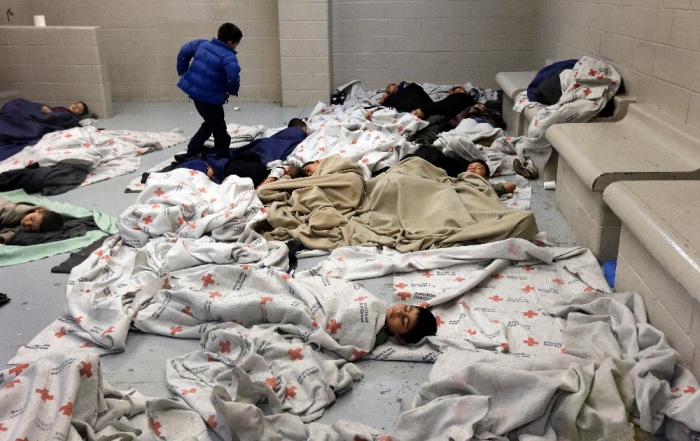Could Christians Opposed to Immigration Reform Be Helping Sex Traffickers?
Are Christians who do not support immigration reform unwittingly helping human traffickers?
Maybe so, suggested Jenny Yang, the Vice President of Advocacy and Policy at the Christian advocacy and humanitarian group World Relief, who has spent the past couple years fighting for federal immigration reform.

"A lot of us evangelicals care about human trafficking, but a lot of us don't realize how much trafficking is tied to immigration," Yang told The Christian Post on Tuesday. "I would say that a broken immigration system is a trafficker's best friend, because traffickers abuse the fact that there's immigrants here without legal status and they underpay them or they enslave them or they abuse them."
Yang believes that passing immigration reform legislation will "significantly strengthen protection of victims of trafficking as well as ensuring that traffickers themselves are prosecuted and criminalized."
"But we won't see those strengthenings of protections and legal remedies without some kind of immigration reform," she continued. "Those two things are fundamentally tied together. Ninety percent of trafficking victims are foreign born and the overwhelming majority of trafficking in the United States are immigrants so we have to address both together."
Yang met with Vice President Joe Biden last week to discuss a surge in children illegally crossing the border; border patrol agents announced last month that they had apprehended more than 52,000 minors, including 9,000 in the month of May alone, reported the Associated Press. According to Yang, the spike in children started in 2011, with over 90 percent of children coming from Guatemala, El Salvador and Honduras who are often fleeing violence in their communities and neighborhoods.
"There's one kid whose friend at school was taken away and was murdered and he got the message from the gang that if he returned to school, he would also be killed off. So he couldn't stay there and so he fled to the United States. You hear stories like this again and again of these kids who are living in these communities which are extremely dangerous for them. I do think the level of gang violence and criminality in these areas has increased," said Yang, adding that she believes those three nations rank in the top five in the world for their homicide rates.
Yang noted that many of these children often become prey for drug traffickers.
"I also think there has been an increase in drug smuggling and drug trafficking and real sophistication among the drug cartels that are operating there that are basically convincing people or telling these kids to cross and using the crossings as the opportunity for drug smuggling and even for human trafficking," she said. "I think that there's been a significant increase in the level and activity in some of these cartels and that's actually led to some of these kids to be trafficked or even hiring some smugglers but end up being trafficked along the way while they are coming to the United States."
Because World Relief's refugee programs are funded by the same federal money which also serves unaccompanied minors, Yang is concerned that the spike in children crossing the border will have negative ripple effects to this other vulnerable population. (The Office of Refugee Resettlement also funds victims of trafficking and Cuban and Haitian immigrants.)
"Over the past couple years, the arrival of refugees and of identifying victims of trafficking has all been pretty even but because of the spike in unaccompanied children, the budget of ORR has stayed the same, which means that for them to care for unaccompanied alien children, according to the law, they have transfer money that's serving other populations under their care to the care of these UACs," said Yang.
"Because ORR already has their money appropriated, they are basically pulling the money from the refugee program to deal with the UAC," she added. "We have significant concerns that unless there is supplemental funding that that cut will be permanent cut for the rest of the year. Obama did say they would make a formal request to Congress next year regarding additional appropriations so that ORR doesn't have to pull from one pot to the other but they can expand their pot so that they can have more money to serve all those who are under their care which is what we are hoping for as well."




























